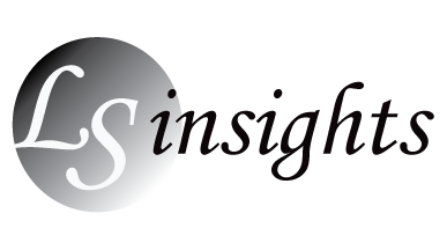
I had never thought about the difference between goals and purpose until I listened to two podcasts referred to below.
When we’re young and thinking about our career, we tend to focus on the goal of being uber successful. We think less about our purpose. To simplify the difference, a goal is measured externally while one’s purpose is more internally derived. So, for example, completing college is a goal while being a good parent is more of a purpose.
For the most part, we are encouraged to have goals related to professional success and money and to ignore or suppress our sense of purpose about creativity and societal contribution.
In reviewing my career, I’m reminded that I had to confront this duality repeatedly. I just didn’t distinguish the two in such a meaningful way.
My first time was during the Clinton Administration when Congress drastically cut our budget at the US Department of Energy (DOE). Because the budget cuts would require reduced staff and I was a relative newcomer, I was very close to getting RIF’d – what the government calls laid off. I started looking for jobs outside of government. At the time, I was working on international climate change negotiations. As I explored my options, I came to appreciate just how innovative we in the US Government were compared to anyone outside of the government (not to mention the world at that point). Realizing the value of what we were doing made me more committed than ever to staying in my government job that focused on preserving our environment. Purpose trumped any other professional goals I had. Luckily, I survived that RIF.
Years later, as folks at my level considered applying for Senior Executive Service (SES) positions, I had to decide whether that was something I aspired to. The SES comprise the highest-level, highest paid management jobs at the career level (vs. political appointees) and are extremely competitive and limited in number. From what I had seen, SES managers spend much of their time navigating political issues and dealing with often difficult political appointees and bureaucracy even as they are incredibly powerful and influential leaders. Once I became a mom and time became so precious, I decided that reaching for a senior management job wasn’t worth it for me. Staying where I was would allow me to focus on the content of the work I loved, preserve a normal workday (and at times, a part-time schedule), and better suit my personality. I also recognized that I was a lucky dinosaur – I had risen to the highest non-SES career level (and pay grade) without having to be a formal supervisor – something that just doesn’t happen anymore, at least where I worked.
It’s helpful to periodically evaluate where we are in our career versus where we had expected to be, as well as whether it conforms to our values and circumstances. I had to accept that I was choosing not to move up the senior executive ladder – and external validation — to preserve my more sustainable life. I just couldn’t imagine the stress of a very high-pressured job on top of a 2+ hour commute, especially if it meant I would be less available and agreeable to my kids. Plus, my doctor husband couldn’t cancel patient visits to care for a sick kid or go to a doctor’s appointment, especially at a moment’s notice. I was the on-duty parent.
This is a very personal family decision that I know others may not have made. I am in awe of friends and colleagues who have the energy and wherewithal to juggle both an intense job and family responsibilities.
I’ve second guessed myself at times. I’ve had to remind myself why I made the decisions about my career that I have. It always helps to keep the big picture in mind. I am happy to say I have no regrets.
Minding Cultural signals
It’s sad and troubling that our American culture values those who make a lot of money over those who lead with purpose and contribute to society (usually at much lower pay). If you think about teachers, nurses, caregivers and yes, government workers, we are all indebted to their sense of purpose. For the most part, I bet they are more satisfied than many at the top of the earning heap. I have rarely met a truly happy (but rich) law partner, who regardless of perceived status is still expected to work crazy hours.
The psychological researcher on one of the podcasts (see below) reports that those who lead their lives based on a sense of purpose tend to have better health profiles. This includes a slower rate of cognitive decline, and fewer heart attacks and strokes. The theory is that their approach to life allows them to manage life’s ups and downs in a more even-keeled, less emotional manner. A virtuous cycle ensues. Their appealing nature makes them more likable, leading to better and deeper connections and relationships, which in turn improves health and life expectancy outcomes. I know I am drawn to people who seem upbeat, positive and committed in a welcoming and nonchalant manner.
Viktor Frankl, a Holocaust survivor and well-known psychologist, found that those in WWII concentration camps who had a purpose and orientation beyond themselves and toward the future had a greater likelihood of surviving the horrors they experienced.
Andre Agassi, the great tennis player, provides good food for thought. His family groomed him for tennis greatness, which he reached as a world champion and Olympic gold medalist. It turns out he hated tennis. His perch admittedly gave him money and notoriety. He has since devoted his efforts to his charitable foundation, which has raised over $60 million to help at-risk children. He views this as his biggest purpose and achievement.
Structured Life Review
The second podcast interview is with a hospice doctor. His practice was to canvass his patients via structured life reviews to help them evaluate their lives as they were ending. From his many interactions, he found the biggest regrets emanated from the relationships, hobbies and dreams his patients had earlier in their lives but didn’t have the courage to pursue. It was never that they should have worked harder and earned more money.
Our internal sense of purpose is not always obvious. The expert points out that we don’t find purpose as much as develop it. This tends to come from three different approaches:
1. Proactive, gradual approach. Over time, we may realize we’ve developed a purpose through a sustained pursuit of an interest, hobby, or avocation. So, a kid who loves dancing, soccer, birdwatching, or camping may become an adult who follows these passions professionally or as a side passion. Of course, this gradual approach can start at any stage of life.
2. Reactive approach. This is when one’s purpose emerges as a response to a distinctive event, such as an illness, death or a lost job. Those who have dealt with trauma or loss often end up running or volunteering for a non-profit that ensures others are not as affected as they were by negative life events.
3. Social learning pathway. We may draw purpose by watching others who inspire us. We’ve all been blown away by a speaker or person who’s example motivates us to get involved or explore a new interest.
Leading with purpose doesn’t have to be as profound as leading an organization. It could mean just recognizing a creative need or interest and taking the time to pursue it. A purpose may or may not align with one’s career or necessarily focus on helping others. I’m finding so many people in retirement, like me, are blossoming by developing a hobby or jumping into a passion project.
I hope this blog post empowers you to think about your purpose separately from your goals. I’m inspired by the idea of a structured life review, in which we think about the relationships, hobbies, dreams and interests we’d like to pursue, even if we’re too scared or busy to take action. It’s just good to keep checking in with ourselves to make sure we’re designing the life we really want to live, with no regrets.
For much more, take a listen to these podcasts, which inspired this blog post:
“Happiness 2.0: Cultivating Your Purpose” from the Hidden Brain podcast.
Life’s Biggest Money Regrets (And How To Avoid Them), from the HerMoney with Jean Chatzky podcast.


This is a great post! Thank you Linda!
Linda, you are indeed a gift! My own story also involves conflict around SES and purpose, but my choices were less intentional and you could add a bit of mysogeny that altered my course along the way. I actually became an SES candidate and even graduated just at the time I got married and started a family but never did achieve SES status as I was drawn to where I could uniquely make a difference and sense of purpose. For many years I questioned why I made the career choices I made but always came back to the same conclusion –that I chose the satisfaction from feeling a sense of purpose and let it guide me. I find there are multiple purposes you can have in life and that sometimes they compete. I am still driven by my career purpose in retirement and it gives my life meaning, but so do opportunities to pursue other fundamental purposes related to family, friends, value, expression in art, music After reading your BLOG I conclude that if it is possible, it is better to make career choices explicit — as you did. And, to decide based upon what you gain, as you consider what you might be losing in regard to PURPOSE(s).
Great post, Linda. Reflecting on my public school teaching career, I always gravitated towards the schools with more diversity and preferred to teach the more challenged students. If I made a difference each year in the life of one student, I felt I’d had a successful year.
Thank you Linda. Your blog really made me think. As a teacher, about to retire, I’m reflecting on all the students I’ve taught in the past. my purpose was to give them the best education possible Being a teacher, I feel, was easy to have a purpose. But it wasn’t always hard doing it!! But I kept my purpose in the back of my mind. Thank you for having me reflect on this topic
THANKS Linda – this is do inspiring
Thank you Linda for an always inspiring blog! I’ve thought about purpose a lot, I feel my job is more of a calling vs a career, and I derive a lot of meaning from it. My concern is more around the next chapter, whenever I decide to not do paid work anymore. Surely this is not the only way to create purpose, and I am searching for what else can fill that bucket. You’ve given me a lot of food for thought, so thank you! And btw, a definite two thumbs up for the Hidden Brain podcast!
Such a pleasure to read your blog. I always learn something from you, and I admire the choices you’ve made!
This was a terrific post that adds reflection and value for all of us. Well done, Linda!